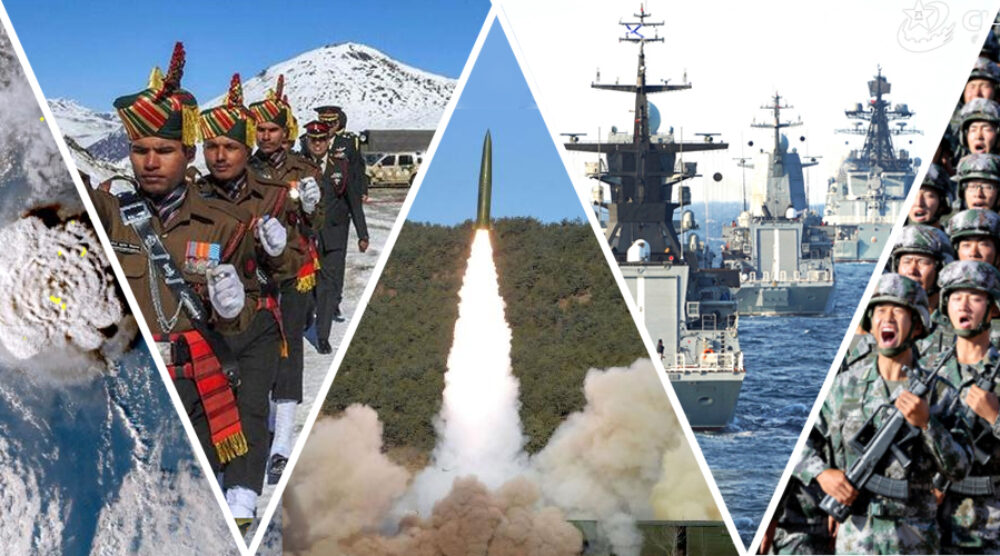DAVID ANDREWS |
Since Russia’s invasion of Ukraine on 24 February, over 3 million Ukrainians have fled their country, another 1.85 million are internally displaced, cities and towns have been destroyed, and thousands killed or wounded in less than a month of fighting. The European security order has been upended, and the conflict has generated a renewed round of debate regarding the enduring relevance and importance of the “international rules-based order”, as well as the assertion from some analysts and officials that this marks an epochal shift in the strategic environment, such that we are entering a “new era” of international politics.
German Chancellor Olaf Scholz has said that ‘with the attack on Ukraine, we have entered a new era…President Putin has created a new reality…[which] requires an unequivocal response.’ For the former-US Deputy National Security Adviser Benjamin Rhodes, ‘it feels like we’re definitively in a new era’ in which ‘the post-9/11 war on terror period of American hubris, and decline, is now behind us.’ British Foreign Secretary Liz Truss has described the invasion of Ukraine as ‘a paradigm shift on the scale of 9/11’ that marks the beginning of ‘a new era’, and Australian Treasurer Josh Frydenberg labelled this moment as ‘pivot point in history, no less important than the fall of the Berlin Wall and 9/11.’ One Australian journalist went as far as to declare that the rules-based order is ‘dead’, and accordingly ‘the only order that matters is the order of battle.’
While the Russo-Ukrainian War is certainly an event of historical significance, I must confess a level of concern about drawing too sweeping or definitive a set of conclusions from a conflict that is only three weeks old and may yet last many months. While the conflict has evidently had an impact on the European security order, noting the announcements from states such as Germany, Sweden, and Denmark that they will be significantly increasing their defence budgets in response to Russian aggression, it is unclear at this stage whether and how the war in Ukraine will fundamentally affect the Indo-Pacific regional order.
Secondary and tertiary consequences from the war in Ukraine are anticipated to have an effect throughout the world, such as from the looming global shortages of grain, cereal crops, fertiliser, and other agricultural products, significant price increases for oil, gold, nickel, and other key metals, and major disruptions to the export of Russian defence materiel, but – at this stage – the main pillars of regional order and the potential conflict flashpoints in the Indo-Pacific remain unchanged.
The European order is largely settled, and underpinned primarily by the EU and NATO, but the institutional structures of the Indo-Pacific aren’t comparable in scope or function. Rather, there are multiple, competing regional orders, and an ongoing contest of power, ideas, economics, and values – not only between authoritarian states and democracies, but liberal and illiberal democracies. Likewise, while there are some similarities between Ukraine and Taiwan vis-à-vis Russia and China, they are not analogues and we ought to be very careful not to conflate them.
Beyond China-Taiwan tensions, there are also several other significant, pre-existing security challenges to manage in the Indo-Pacific. The Ladakh crisis on China and India’s Himalayan border remains unresolved, China’s antagonism in the South China Sea continues unabated – including conducting naval exercises inside Vietnam’s exclusive economic zone – and North Korea has carried out nine ballistic missile tests already in 2022. Closer to home, the volcanic eruption and tsunami in Tonga, and the floods in Queensland and New South Wales, are only the most recent examples of the sudden and hugely destructive effects of natural disasters and climate change in our region.
While some of these challenges may be best addressed via the deterrent effect of military force, it cannot strengthen the Indo-Pacific order alone. To that end, at the recent Griffith Asia Institute Australia-Japan-India trilateral dialogue, one of the keynote speakers offered four recommendations on how to reinforce the regional order. Namely, Australia, Japan, and India should get our domestic affairs in order (prioritising democratic stability and implementing serious policies on climate change and human rights), strengthen links between smaller states (emphasising that there’s more to the Indo-Pacific than just the US and China), reinforce alliance networks (US treaty allies as well the Quad), and continue patterns of cooperation (such as on anti-piracy, anti-drug trafficking, and environmental protection projects).
For Australia specifically, another speaker emphasised that we are not currently doing enough in Southeast Asia to respond to their identified needs, such as infrastructure, digital technology, and green energy. Similarly, Australia was encouraged to work harder to ensure that initiatives like the Quad and AUKUS are better understood by, and viewed as more important to, regional states. This, in turn, would contribute to building a more stable and durable set of institutions that could respond to regional security challenges as they emerge.
While the government and opposition have both committed to considerable spending increases for Defence ahead of the election in May, including a new submarine base on the east coast, and 18,500 new personnel by 2040, noting the above it is also crucial that Australia reinvigorate its full suite of diplomatic tools, including via increased funding for DFAT and permanently enlarging the aid budget. Defence, diplomacy, and development assistance are the three sides of the strategic triad; emphasising one at the expense of the others only undermines their overall effectiveness.
Regardless of whether we have truly entered a new era of international politics in the Indo-Pacific, to strengthen and stabilise the regional order will require states to draw on all aspects of their national power. Now is the time to ensure Australia’s key foreign policy agencies are suitably resourced to enable them to address the full spectrum of security challenges they expect to face.
David Andrews is a researcher at La Trobe University
This article is a product of the Griffith Asia Institute’s recent Australia-Japan-India Trilateral which was supported by the Ministry of Foreign Affairs Japan.








